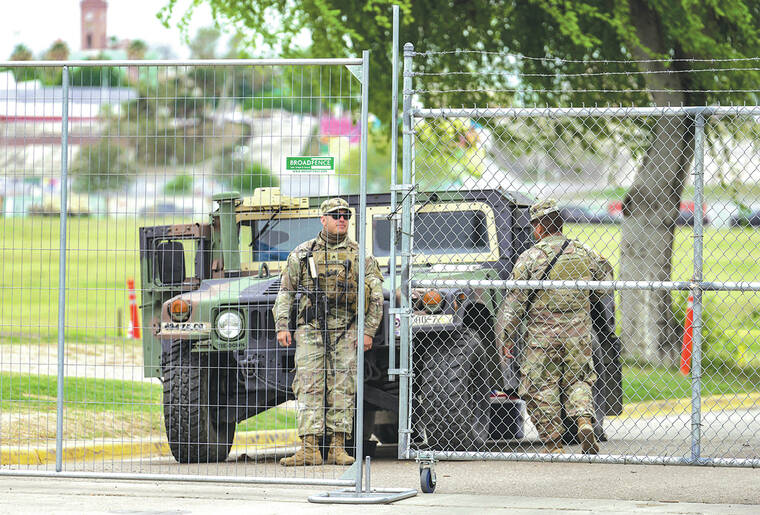Court action on Texas’ migrant arrest law leads to confusion at the US-Mexico border
McALLEN, Texas — A dizzying volley of courtroom maneuvers over a Texas law that would allow the state to arrest and deport people who enter the U.S. illegally sowed confusion at the nation’s border with Mexico on Wednesday as sheriffs, police chiefs and migrants waited for direction.
Texas faced skeptical questioning during a hearing before a three-judge panel of the 5th U.S. Circuit Court of Appeals that ended without a ruling, leaving the new law on hold for now. It was part of a flurry of activity that included a decision from the U.S. Supreme Court that allowed the law to take effect for several hours Tuesday. And regardless of how the three-judge panel rules, the legal saga over Texas Republican Gov. Greg Abbott’s latest escalation to prevent illegal border crossings won’t be over.
Yolanis Campo, 42, who traveled from Colombia and crossed the Rio Grande to enter the U.S. from Mexico with her 16-year-old daughter, recommended other migrants take another route because of the confusion over Texas’ law. She was processed by Border Patrol agents who released her with an ankle bracelet to pursue her immigration case.
“It’s more complicated because (federal authorities) tell us we can move on, but this new rule, this new law complicates everything because it says we can’t move on,” said Campo, who was staying at a shelter in McAllen.
During Wednesday’s hearing, 5th Circuit Chief Judge Priscilla Richman questioned how the state law would be carried out, including how Texas would respond if federal authorities don’t cooperate with a state judge’s order to deport someone. No arrests were reported while it was in effect Tuesday.
The U.S. Department of Homeland Security has said it would not have authority to deport under the state law.
“This is uncharted because we don’t have any cases on it,” said Texas Solicitor General Aaron Nielson.
The Justice Department has argued that Texas’ law is a clear violation of federal authority and would create chaos at the border.
The department’s lawyers faced a grilling from Judge Andrew Oldham, who was appointed by Republican President Donald Trump. The third judge on the panel, Judge Irma Ramirez, an appointee of Democratic President Joe Biden, previously voted to keep the law on hold.
Richman, who was appointed by Republican President George W. Bush, challenged Texas’ assertion that it is exercising a “core police power,” getting Nielsen to acknowledge that deporting people has been a federal responsibility. But Nielsen denied that Texas is “trying to take over the field” on border enforcement and said the state wants to cooperate with the federal government to address the issue.
Nielsen also said he did not know how the law would affect someone who entered the country illegally but came to Texas from another state.


